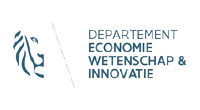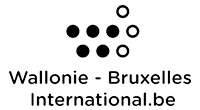Brazil / Belgium Scientific Cooperation is expected to increase
Directors of research funding agencies at FAPESP Week Belgium in Brussels highlight the potential for growth in the number of partnerships between scientists from the two countries
By Heitor Shimizu, in Brussels | Agência FAPESP – "There is enormous potential in terms of scientific cooperation between Belgium and Brazil," said Arnaud Goolaerts, managing director of research at Belgium's National Fund for Scientific Research (F.R.S.-FNRS) at the opening session of FAPESP Week Belgium held in Brussels this Monday (10/8).
According to Goolaerts, 58% of the articles published by researchers supported by the F.R.S.-FNRS – which focuses on the development of science, technology and innovation in the Wallonia-Brussels Federation (a region made up of Wallonia and the Belgian capital) – are produced in cooperation with colleagues from other countries, but out of that total, only 2.5% stem from partnerships with Brazilians.
"The number of articles published by researchers from the Wallonia-Brussels Federation has increased each year, just as the number of articles produced by Brazilian scientists has. However, we have not seen the same increase with regard to collaboration between researchers from Wallonia-Brussels and Brazil," he said.
Goolaerts emphasized that the scenario must change and that an event such as FAPESP Week Belgium, which brings together scientists from Belgium and Brazil, is an excellent initiative in this area.
Held at the Brussels Comic Book Museum, the event is organized by FAPESP together with Belgian organizations F.R.S.-FNRS, the Department of Economy, Science and Innovation (EWI), the Research Foundation Flanders (FWO) and the Wallonie-Brussels International (WBI).
FAPESP Scientific Director Carlos Henrique de Brito Cruz said that the event in the cities of Brussels, Liège and Leuven is part of the effort by FAPESP to expand collaboration with Belgium, a country with which FAPESP has three cooperation agreements.
One of the agreements is with F.R.S.-FNRS, signed in 2015 to implement scientific and technological cooperation (www.fapesp.br/10266) between researchers from the state of São Paulo and the Belgium fund. Up to now, the institutions have announced three calls for proposals, with four research projects selected in the first two calls. Proposals in a range of fields may be submitted by October 29 under the current call for proposals (www.fapesp.br/en/11908). The funded exchange activities may have a duration of up to 24 months.
"But international collaboration must go well beyond the exchange or mobility of researchers. FAPESP looks for full research projects with complex objectives that have multi-year duration and are internationally competitive. They are expected to be fully collaborative projects, conceived, written, presented and developed together by researchers from the state of São Paulo and other countries," said Brito Cruz.
Jessica Miclotte, manager of the Department of Research and Innovation at the WBI also emphasized the increased interest in collaboration between researchers from Belgium and Brazil.
"The importance we attribute to this partnership is exemplified by the fact that of the five representative offices the WBI has to support scientific cooperation in other countries, one is in Brazil," she said. "The others are in Sweden, the United States, Germany, Switzerland and Canada."
Among the mechanisms offered by the WBI to support international cooperation, Miclotte mentioned "researcher mobility schemes, academic grants and European financial tools such as Horizon 2020".
Through the Horizon 2020 program (www.fapesp.br/9440), FAPESP collaborates with the European Union through a program to encourage partnerships between researchers based in the state of São Paulo and researchers in Europe.
Peter Spyns, coordinator for international policy at EWI, talked about the current scenario for collaboration between researchers from Brazil and Belgium through the Horizon 2020 Program.
He said, "there are "two projects funded in the field of Leadership in Enabling and Industrial Technology, two projects in Climate Action, Environment Resource Efficiency and Raw Materials, three projects in Food Security, Sustainable Agriculture and Forestry, Marine, Maritime and Inland Water Research, and two projects in Health, Demographic Change and Well-being."
"Several Brazilian institutions support or take part in these collaborations including the Oswaldo Cruz Foundation, the University of São Paulo, Butantan Institute, the São Paulo Agency for Agribusiness Technology and FAPESP," Spyns said.
Isabelle Verbaeys, head of International Affairs at the FWO, presented data illustrating the increase in cooperation between Belgian and Brazilian researchers. Although Brazil is only in 20th place among countries whose scientists collaborate with those from the region of Flanders, "the number of co-publication links with Brazil on the Web of Science has increased yearly, from 320 in 2013 to 624 in 2017."
According to Verbaeys, another indicator of this increase is the agreement signed by FWO and FAPESP this year (www.fapesp.br/11755), which announced its first call for proposals (www.fapesp.br/11610). The goal is to support collaborative projects between researchers from the state of São Paulo and Flanders in any field of knowledge as long as it covers basic scientific research. The projects selected will begin in January 2019 and have a maximum duration of three years.
Innovation in São Paulo
Brito Cruz made the first presentation at FAPESP Week Belgium, in which he discussed R&D in São Paulo. "São Paulo has a vigorous system for science, technology and innovation, with stable funding for research, strong research universities, support for business-university joint research, interest from national and multinational companies and the largest scientific output in Latin America," he said.
The FAPESP scientific director mentioned that the number of scientific papers published annually – nearly 25,000 – by researchers from institutions in the state of São Paulo exceeds the total production of countries such as Mexico, Argentina, Chile and Colombia.
Brito Cruz stressed that unlike in other states in Brazil, most public investment in research and innovation in São Paulo comes from state rather than federal funds.
He went on to talk about the role of FAPESP, which invested more than R$ 1 billion in 24,000 research projects in 2017, 85% in projects seeking the advancement of knowledge.
"All research proposals received by FAPESP are peer reviewed. Of the nearly 26,000 proposals for fellowships and grants in 2017, the acceptance rate was 41%, and the average decision time was 69 days," he said.
The scientific director also underscored the importance of international research cooperation, noting that FAPESP has cooperation agreements with more than 200 organizations in 28 countries, and signed 26 new agreements in 2017.
In 2017, FAPESP invested R$ 175 million to promote scientific cooperation between researchers from institutions in São Paulo and research institutions in Brazil and abroad. The goal is to optimize the result of scientific research in areas of mutual or complementary interests, and expand the international impact of science produced in the state of São Paulo. FAPESP invested R$ 27.2 million on collaboration in Brazil and R$ 147.8 million on international collaboration.
According to Brito Cruz, in addition to awarding scholarships and grants for researchers and students from the state of São Paulo to go abroad, FAPESP has several mechanisms to encourage researchers and students from other countries to come to the state of São Paulo. Researchers from 167 countries traveled to São Paulo in 2017 on grants awarded by FAPESP.
Brito Cruz also talked about the São Paulo School of Advanced Science (SPSAS) program, which offers short-term courses given by renowned Brazilian and foreign scientists, and the São Paulo Excellence Chair (SPEC) Program, in which senior-level researchers from other countries collaborate with their Brazilian colleagues for periods of three to five years, involving 12-week stints in Brazil each year.
The scientific director also talked about the importance to FAPESP of supporting research studies carried out at universities in partnerships with companies, highlighting the Research, Innovation and Dissemination Centers (RIDCs), the FAPESP Innovative Research in Small Businesses Program (PIPE) and the Engineering Research Centers/Applied Research Centers (CPE/CPA), "which total more than R$ 1 billion in contracts to support long-term advanced research projects."
Brito Cruz said that FAPESP is seeking to have an impact on science and technology in the state of São Paulo through three dimensions: the social, economic and intellectual. "In terms of social impact, FAPESP is behind ideas that enable an increase in well-being, that assist or inform public policy, and that increase the benefit from public goods."
"In terms of economic Impact, we seek ideas that lead to new businesses, increase economic competitiveness and result in new industry sectors. Intellectual impact means looking for ideas that are influential, give rise to more ideas and make humankind wiser," said Brito Cruz.
FAPESP Week continues Tuesday (09/10) in Brussels with presentations of research results on the topics of "Industry 4.0" and "Bioeconomics" along with a round table discussion about the perspectives for future collaboration among scientists from Brazil and Belgium. On the following day, members of the São Paulo delegation will take part in visits and meetings at research centers in Liège and Leuven.






